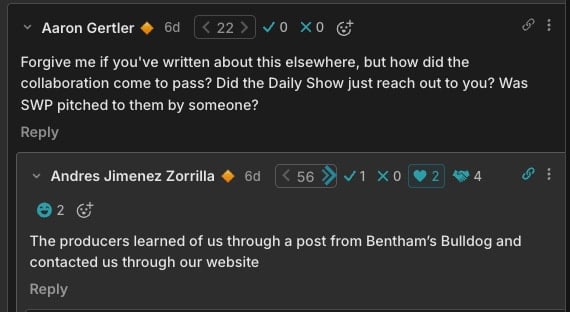I wrote an essay that's a case study for how Open Philanthropy (and by abstraction, EA) can be better at communications.
It's called Affective Altruism.
I wrote the piece because I was growing increasingly frustrated seeing EA have its public reputation questioned following SBF and OpenAI controversies. My main source of frustration wasn't just seeing EA being interpreted uncharitably, it was that the seeds for this criticism were sewn long before SBF and OpenAI became known entities.
EA's culture of ideological purity and (seemingly intentional) obfuscation from the public sets itself up for backlash. Not only is this unfortunate relative the movement's good intentions, it's strategically unsound. EA fundamentally is in the business of public advocacy. It should be aiming for more than resilience against PR crises. As I say in the piece:
The point of identifying and cultivating a new cause area is not for it to remain a fringe issue that only a small group of insiders care about. The point is that it is paid attention to where it previously wasn't.
The other thing that's frustrating is that what I'm asking for is not for EA to entertain some race-to-the-bottom popularity contest. It's an appeal to respect human psychology, to use time-tested techniques like visualization and story telling that are backed by evidence. There are ways to employ these communications strategies without reintroducing the irrationalities that EA prides itself on avoiding, and without meaningfully diminishing the rigorousness of the movement.
On a final personal note:
I feel a tremendous love-hate relationship with EA. Amongst my friends (none of which are EAs despite most being inordinately altruistic) I'm slightly embarrassed to call myself an EA. There's a part of me that is allergic to ideologies and in-group dynamics. There's a part of me that's hesitant of allying myself with a movement that's so self-serious and disregarding of outside perceptions. There's also a part of me that feels spiteful towards all the times EA has soft and hard rejected my well-meaning attempts at participation (case-in-point, I've already been rejected from the comms job I wrote this post to support my application for). And yet, I keep coming back to EA because, in a world that is so riddled with despair and confusion, there's something reaffirming about a group of people who want to use evidence to do measurable good. This unimpeachable trait of EA should be understood for the potential energy it wields amongst many people like myself that don't even call themselves EAs. Past any kind of belabored point about 'big tent' movements, all I mean to say is that EA doesn't need to be so closed-off. Just a little bit of communications work would go a long way.
Here's a teaser video I made to go along with the essay:



I thought the video was excellent, and the highlights of your article were the concrete ideas and examples of good communication.
More concrete ideas please! I don't think anyone will disagree that EA hasn't been the best at branding itself, but in my experience it's easier said than done!
If people want more concrete ideas they can hire me to communications work.
I don't know how to be more concrete than I did in the article without working for free.